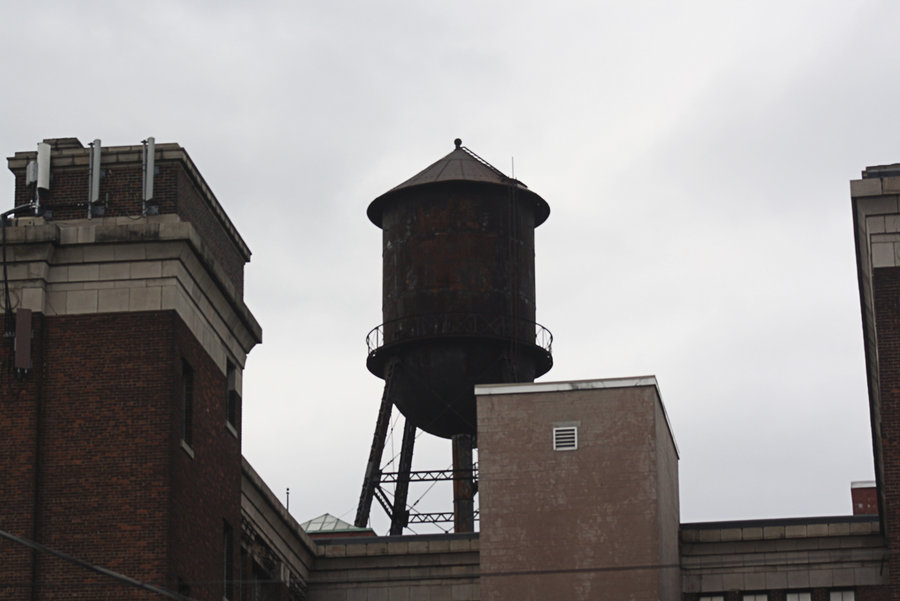In response to local concerns raised by news stories about lead contamination in the water supply in Flint, Mich., Jersey City will hire an independent, third party consultant to test the city’s drinking water. This comes at the request of several neighborhood associations, even though the water is already tested by Suez Jersey City (formerly United Water) which provides water to the city.
Jersey City has agreed to hire an independent firm to allay fears and provide an extra level of security, officials said.
Mayor Steven Fulop and the Jersey City Municipal Utilities Authority (MUA) made the announcement on Feb. 1, after concerns were raised at several community meetings held earlier in the week.
Fulop said the MUA will hire the consultant for testing. The independent testing, which has an allocated budget of $50,000, will include all contaminants listed on both the federal and state drinking water standards lists, which includes lead and copper, among others. Currently, these tests are conducted by Suez Jersey City at levels mandated by the New Jersey Department of Environmental Protection (DEP) and the U.S. Environmental Protection Agency (EPA).
“We thought it was a prudent expense to add an extra level of security for our residents, especially our young children.” – Mayor Steven Fulop
____________
The crisis in Flint started in April 2014, after Flint changed its water source from water treated in Detroit to a source providing water from the Flint River. The new supply proved to be more corrosive and caused lead from aging water pipes to leach into the drinking water supply.
Although United Water changed its name to Suez Jersey City late last year, the water supply remains unchanged.
Jersey City schools had a lead problem
Jersey City schools three years ago had a problem with contaminated water fountains, which forced the district to close many of the fountains until the pipes could be replaced.
In 2013, the school district found out that almost 2,000 fountains and sinks contained lead above levels allowed by the federal government. In several cases, the contamination was hundreds of times higher than the limits set by federal environmental regulators.
According to the district, in most cases the water fountains and sinks were not in use at the time of the report.
The school fountains and sinks were tested over a four-month period from 2012 to 2013 and showed unacceptable levels of lead.
Because of the age of the schools – which were constructed in a less lead-conscious era – the water has to be monitored to make sure that the levels remain safe.
While the worst contamination was found in School 25, the report said unacceptable levels of lead were also found in Schools 5, 9, 23, 27, 31, and the annex to 29.
Health risks from lead
Regardless of how lead enters the body – breathing it in, swallowing it or absorption from paint particles – lead gets stored in bones, blood and tissue. Because it happens slowly, symptoms are often overlooked. Exposure to high levels of lead can cause anemia, weakness, kidney, and brain damage. Very high lead exposure can result in death. Lead exposure to unborn babies can cause behavior problems and affect intelligence. It can also result in retardation to children.
People with prolonged exposure to lead may also be at risk for high blood pressure, heart disease, kidney disease, and reduced fertility. Federal health officials also believe lead can cause cancer.
Tests will take three to four weeks
Jersey City officials said the new testing will also include 30 additional chemicals that require specialized tests and are not mandated by the EPA and DEP, but will be included as an added precaution.
“The situation in Flint is one that no community should have to experience, and while testing is done routinely on the Jersey City water supply, residents have reached out asking for comprehensive testing and we thought it was a prudent expense to add an extra level of security for our residents, especially our young children,” said Mayor Fulop. “I want to thank the DCNA and the concerned residents at last week’s meeting for suggesting this measure as it will give us the peace of mind that we all want following the crisis in Flint. There is no dollar amount that can be put on one’s health.”
The testing was requested at the Ward “E” town hall meeting by residents of the DCNA neighborhood association. The MUA will accept proposals this week and following the proposals, the MUA will enter into contract and begin testing, which is expected to take three to four weeks.
Al Sullivan may be reached at asullivan@hudsonreporter.com.
